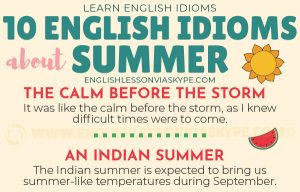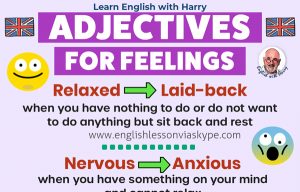Will or Be going to? How to use these grammar structures correctly in English? Here you will find a few English tips that will help you choose will or be going to in the future.
Recently we’ve looked at the difference between USED TO and PAST SIMPLE when talking about past events. Now let’s continue improving your English Grammar and learn how to talk about things that have not yet occurred.
There are four ways you can talk about future events in English.
- the Present Simple
- the Present Continuous
- the Future Simple (Will)
- Be going to
4 Ways to talk about the future
Table of Contents
Will or Be going to or The Present Continuous?
We can talk about the future using the following forms – Present Continuous, Will or Be going to.
Examples:
- Will – I’ll make you a cup of tea.
- Be going to – It’s going to rain.
- Present continuous – I’m coming tomorrow.
Sometimes the difference between them is small, but you need to remember the following points. So what is the difference between will and be going to?
Intermediate to Advanced English Marathon

INSANITY: doing the same thing over and over again and expecting different results.
Albert Einstein
- What you'll learn:
- better understanding of more complex grammar structures
- advanced English vocabulary words
- British & American slang
- perfect your listening skills through practing different accents
- This marathon is for you if you're:
- stuck at an intermediate English level
- tired of confusing explanations
- a mature student
- shy & introverted
When to use BE GOING TO
We usually use be going to when:
We talk about something that is about to happen because we’ve already made a decision
- Sarah wants to do something different, she is going to look for a different job. (she has already decided)
- Next year I am going to travel around the world. (I have made a decision)
We expect something to happen as there is evidence in the present
- The plane is going to land soon.
- I am going to have lunch now.
In very informal English and in songs going to is often pronounced as gonna.
Will or Be going to? - Summary Grammar Rules

Share and help other students improve English skills
When to use Will (Future Simple)
We usually use will when:
We haven’t made a decision yet, or we make a prediction
We often use words such as
THINK, PROBABLY, SURE, SUPPOSE, DEFINITELY, DOUBT, BET (informal), RECKON (informal)
- I think I’ll buy her some perfume as a birthday present. (I haven’t decided yet)
- I doubt they will win this match. (It is expected to happen)
When we make offers or suggestions
- I’ll look after the kids on Saturday.
- I’ll get this book for you now.
IMPORTANT we also use the form Shall I/Shall we to make offers or suggestions
Shall we go to the match on Sunday?
Shall I wear a white shirt tonight?
When we make a decision at the time of speaking (for example, we make a promise)
- I will pick you up at 8.30 a.m.
- Can you lend me your camera, please? I promise I won’t break it.
When we talk about events that are certain to happen in the future
- New Year’s Day will fall on a Friday next year.
- I will be 30 years old in October.
IMPORTANT Positive form – I will (I’ll); Negative form – I will not (I won’t)
When to use the Present Continuous Tense
We usually use the Present Continuous Tense when:
We have already made arrangements to do something
- Ann has just let me know that she’s staying overnight with her friends.
- I’ve seen Sharon recently and she’s having another baby in June.
We explain why we can’t do something in the future
- I can’t come to the cinema with you tonight, I am going to visit my parents.
- Jake is not available for the game on Sunday, he is going away.
Don’t forget to read my other grammar posts and enjoy Learning English Grammar Online
Video Lesson - Will or Be going to?
More Information
For more information in English Expressions, English Phrasal Verbs and English Grammar Rules, check ou the following links:
English Verbs for Expressing Sounds
English Idioms related to Dreams
Intermediate English learners! Here is your chance to master English Grammar Tenses so you can speak English fluently and with confidence, sign up for 6-hour English Grammar Rules Refresher Course. Click on the link to read more.
You will love these English lessons

Summer Vocabulary – English Collocations and Idioms
Learn some of the English summer vocabulary. These English collocations will help you better describe your summer routines. Even though


Vocabulary about Education
Here you will learn English vocabulary about education. Just before we learn how to take about education in English, let’s


Adjectives to Describe Feelings in English
Here you will learn adjectives to describe feelings in English. Learn new words and boost your English vocabulary. Table of